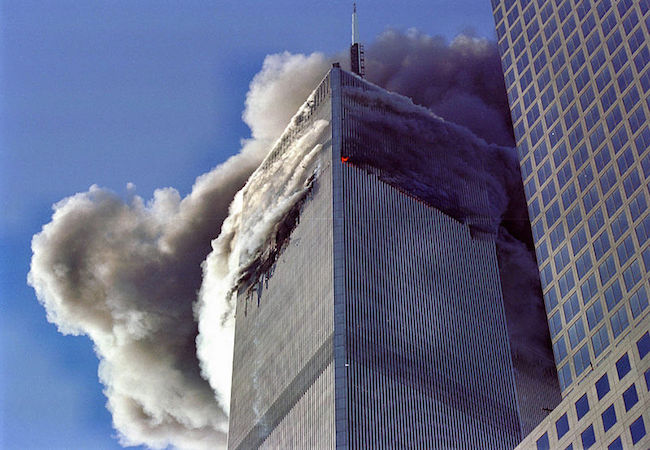Terrorism, the challenge of the New Global Order

By Dr. Lisen Bashkurti
Fifteen years ago, was the day when all humanity was confronted with the most horrific terrorist attacks that had ever happened in the U.S. Soil. United States, the temple of global democracy; the Twin Towers of New York, symbols of global free trade and the Pentagon, America’s defense bastion, were under attack.
In Memoriam
Al-Qaeda’s September 11th, 2001 terrorist attacks took the lives of over three thousand innocent people from the four inhabited continents and maimed, wounded psychologically and physically another couple thousands of innocent men and woman. Moreover the psychological world of the citizens of New York as well as throughout the United States experienced a deeply rooted trauma.
The entire world felt a deep shock that would be accompanied by a frightening panic that was never seen before. And this is because the temple of democracy was under attack, the center of the new Global Order and symbol of strength was harmed. In other words, was attacked the nation that is a genuine dream of people from all over the world.
September 11 revealed in a transparent and a startling fashion the greatest enemy of human civilization, the catastrophic enemy of humanity; a menace to illuminist values, democracy and prosperity. This enemy was International Terrorism.
It is a real enemy, obscure, cruel, barbarian, destructive, dishonest. It is an enemy that is seen everywhere; an enemy that appears throughout the globe; an enemy that makes our world become insecure; an enemy that would take the lives of many thousands of innocent people.
The squares filled with human blood and the frightening destruction would become the very signs of International Terrorism in the civilized world.
Anti-Terrorism Coalition
The earlier shake-up, panic and fear generated by the September 11 attacks did not break the united strength of humanity against International Terrorism. United States of America and its allies of interests and values organized within an international coalition against terrorism, reacted with unwavering power.
Within a short period of time the two countries that are homes of terrorist organizations such as Afghanistan and Iraq were immediately attacked. The centers of international terrorism were dismantled, Al Qaeda was eliminated and Osama Bin-Laden and his supporters were killed.
Under the guidance of such a powerful global freedom and democratic influence there was an awakening by the nations of Maghreb and of Middle East in order to overthrow their fanatic and violent dictatorships in their home countries. Terrorism started to shrink. However this would be a short term behavior; Terrorism cells undertook local recruitment measures.
Terrorism changed its tactics
The immediate powerful attacks shrunk the influence of International Terrorism but unfortunately it could not be fully eliminated. Al-Qaeda was dismantled; however the Islamic State in Iraq and Syria, its offspring was born. Global terrorist organizations became weaker, nonetheless regional and local terrorist organizations became more active, such as: Hezbollah, Jihad, Al-Nusra Front, Boko Haram in Nigeria and Al-Shaabab in Somalia.
Such a terrorist organization was followed by new tactics and by a shift in terrorist actions towards the areas that are outside of the traditional map of terrorist attacks; almost all countries and global metropolitan areas were attacked.
However the main target for terrorist attacks became the Euro-Atlantic region: Paris, London, Rome, Berlin and Brussels lost their peace. Just like the wave of an earthquake, terrorism attacked Istanbul, Ankara, Moscow and many other major cities. These actions were undertaken with the help of small terrorist cells located throughout global metropolitan areas as well as by utilizing large waves of immigrants that were displaced from hot conflict zones towards Europe’s peaceful shores.
Through ISIS, terrorism established the roots of a quasi state structure. In the meantime it bolstered logistical strategies, entrepreneurial and financial support and training programs. Particular countries still continue to support directly or indirectly such a terrorist network.
The Asymmetric War Continues
The nature of terrorism, its structure, tactics and decentralization, its diversification, penetration, new recruitments, dynamics, sophisticated technologies, religious camouflage; make International Terrorism become a non conventional enemy with an elevated threat.
The obvious allies of international terrorism are: violent extremism, organized local and transnational crime, illegal trafficking, money laundering as well as a high level of corruption engulfing weaker governments.
As a result we do not have a traditional enemy. We do not have a visible war front. We do not have well calculated measurements in respect to ground forces or weapons being used. We don’t have classical military tactics and offensive strategies. The frontal war against International Terrorism is mainly asymmetric and non-conventional.
These circumstances make the war against International Terrorism to: become multidimensional; be strategically unique; require military intervention; provide a plethora of intelligence services; secure political support and diplomatic ideologies; ensure economic support; secure psychological, sociological and cultural training as well as technical and technological supplies.
Humanity has never been faced with such a War. However our civilization will undoubtedly win the ongoing war against terrorism. At that time we will hear the bells of a new Global Order. What kind of a new order? No one knows. All we know is that the new Global Order will be different to what has been in the past and it will even be different to our current transitional processes.
Source: http://perqasje.com/2016/09/sfida-drejt-rendit-te-ri-boteror/
Translated from Albanian by Peter Tase




